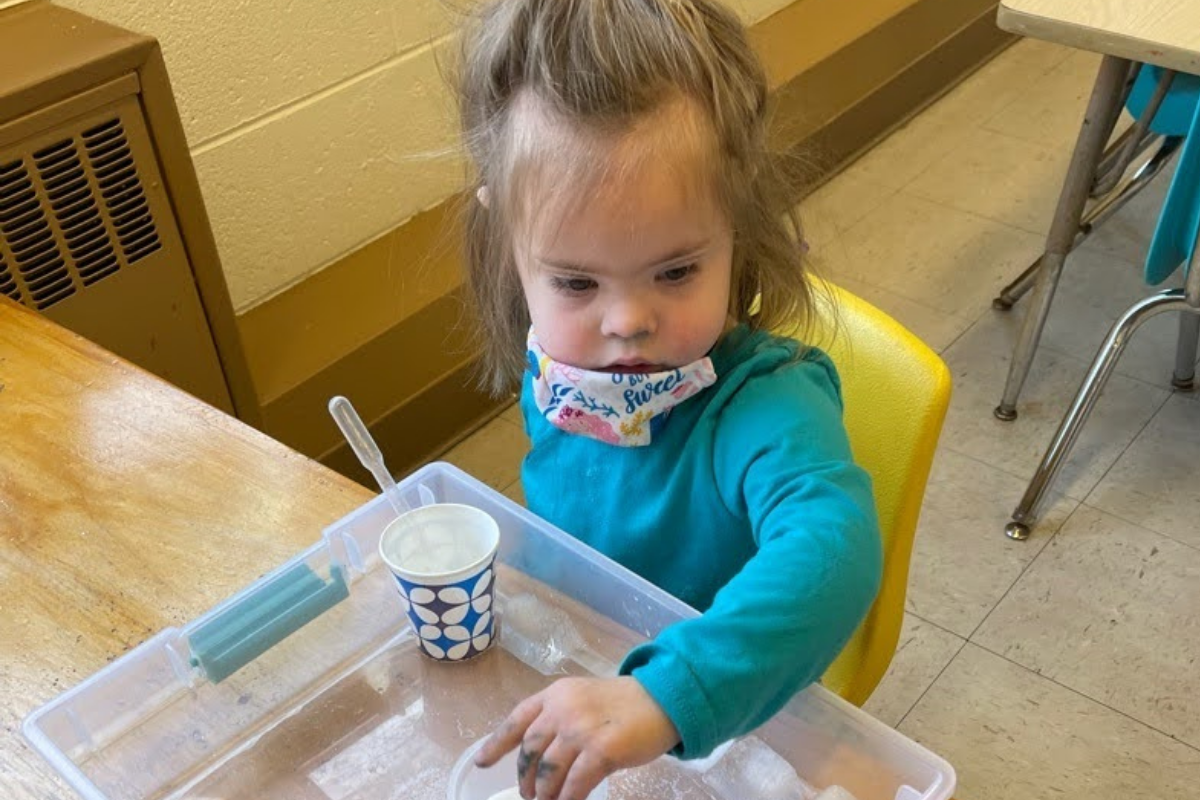Inclusion is the prized possession in the special needs world. It’s what everyone seems to be fighting for and advocating for. You win if your child is fully included in a general education classroom. So, what happens when your child is not included? What about if you choose a special education classroom?
And as I just had to make a decision about Harper’s education for next year, I was thrown into this battle of inclusion vs special education.
Inclusion is hard
What I’m realizing is that a truly inclusive environment is really hard to find. Inclusion is not just about being included or invited to a space. It’s about a space that allows everyone to participate and thrive – including a child with a disability.
And what I’m seeing is that we’ve had a lot of progress on the first step in inclusion, which is allowing a person with a disability to be present. But there is a lot more needed to make environments places that everyone can thrive in.
But there is this tension I feel as a special needs mom. I want to advocate so things will be better for not only Harper but the people behind us. Because I recognize all the things I get to experience and not experience because of the parents that came before me. And I’m grateful for their fight. But I also want to do what’s best for my child.
Semi-inclusive experience
So, we’ve been splitting our time between a private preschool program and a special education program. It feels great that Harper spends a few days with her peers and then a few days with some extra support and therapies.
As we explored our options for next year, I felt a lot of tension about this educational decision. Especially when I felt drawn to the special education classroom.
An unpopular path
We decided for now to go the special education route. Which is the unpopular path in the advocacy world or at least that is how it feels. I’m not fighting for inclusion if I choose a special education class.
But I can’t deny seeing some beautiful benefits of this specialized program for Harper.
Special education improved communication
When your child is not talking yet, communication takes so much more effort. In her special education class, her teachers know sign language. They are better equipped to communicate with her.
And she has learned new signs that she now uses at home. She even is saying the word “bubble”. This improvement in communication means there is less frustration and less yelling at home. And we can point back to the special education classroom as the reason for this improved communication.
Improved participation in special ed
In the fall we were shocked to receive a report from Harper’s private preschool that she wasn’t really participating. While in her special education class that was the complete opposite evaluation.
Again, since Harper isn’t talking yet, we have to rely on teacher communication and her body language about how things are going. When I drop her off for her special education program she is running to the door. Then she doesn’t want to leave when I pick her up. All positive vibes that she is enjoying her time there. She isn’t unhappy at her other school, but there is a noticeable difference in her vibe. And I want Harper to enjoy and get excited about school.
Special education is good
While I believe she is absolutely welcomed in her private preschool – which is a massive first step – it just isn’t an environment she is thriving in as the gap of ability grows between her peers. But the inclusion narrative seems to villanize special education, specifically separating kids based on their abilities.
But don’t I want Harper to be in an environment where she can flourish? And maybe that means being in a smaller classroom with specialized teachers for now.
Choosing between special education vs inclusion
The pressure and tension of this decision felt so permanent. Like I was setting the whole trajectory of her life and education, but that is too much weight for this decision to bear. There are so many other factors to consider.
And for now, I’m thankful there is a program for Harper. One that I don’t have to bring a sheet of the signs she knows and wonder if the teacher knows what she is trying to communicate. Or explain her slow potty training process. Or receive evaluations based on typical developmental guidelines.
Because being a parent to a child with Down syndrome is really exhausting. So when I find a place where my child is welcomed and thriving without a lot of extra advocacy on my part, then I’m gonna take the win and celebrate it.

